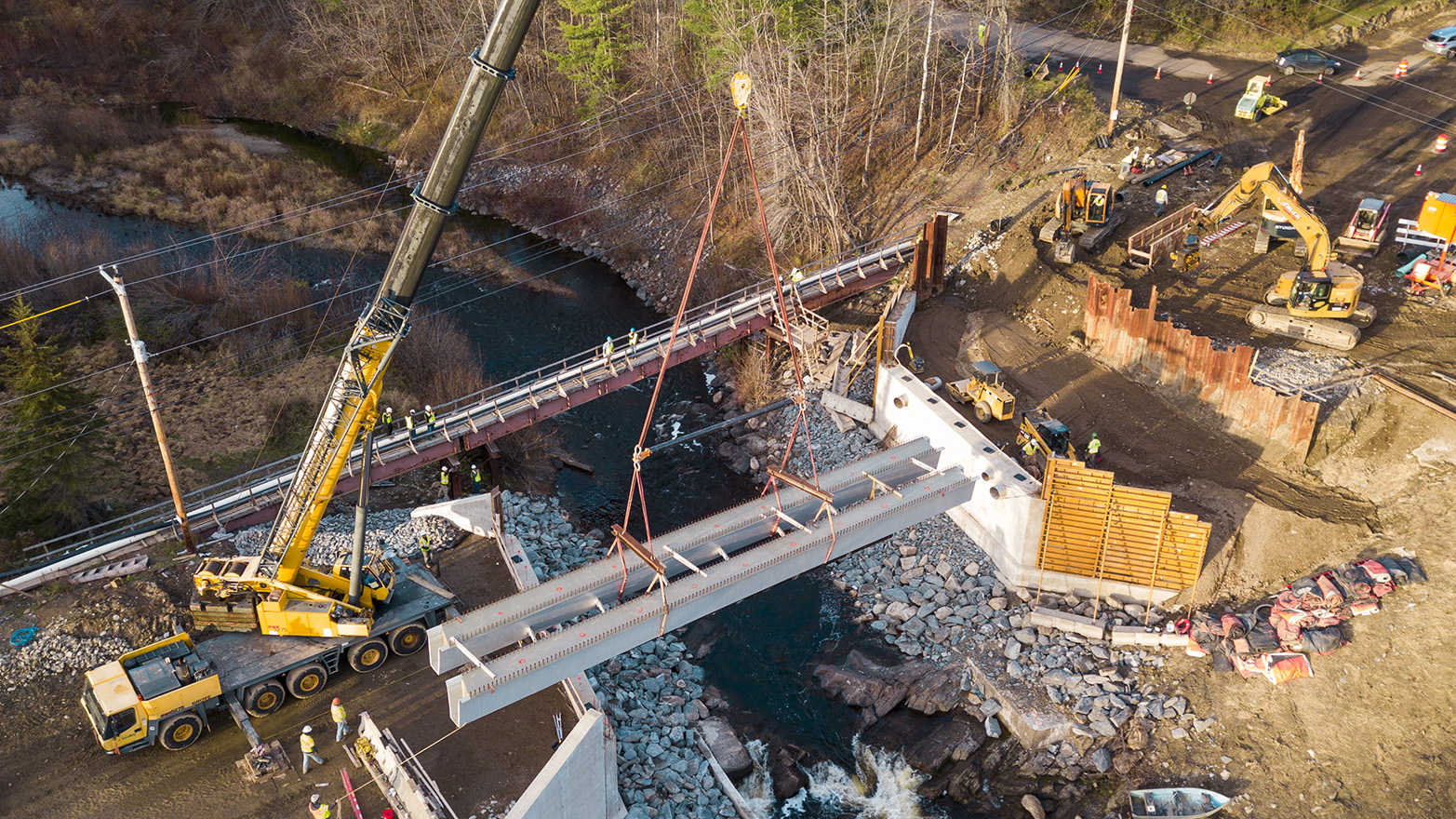
Innovating the roads of tomorrow
The Transportation Infrastructure Durability Center generates innovative solutions to build sustainable transportation infrastructure.
The Transportation Infrastructure Durability Center (TIDC) at the University of Maine is committed to developing innovative, transformative, and implementable infrastructure solutions that extend the life and improve the durability of transportation assets.
In addition to UMaine, TIDC’s consortium of six New England universities includes the University of Connecticut, the University of Vermont, the University of Massachusetts Lowell, Western New England University, and the University of Rhode Island in collaboration with the Departments of Transportation (DOTs) in six New England states. Funding for TIDC was secured through a six-year grant awarded by the U.S. DOT following a New England-wide competition among university consortiums.
TIDC is a U.S. Department of Transportation University Transportation Center (UTC) based within the University of Maine’s Advanced Structures and Composites Center (ASCC). The program, which is led by a team at ASCC, includes Habib Dagher, who is principal investigator on the project; Senior Program Manager James Bryce; Advisory Board Chair Dale Peabody; and Research Areas Leads Bill Davids, Aaron Gallant, Eric Landis, Roberto Lopez-Anido and Jonathan Rubin.
With more than 70 faculty and 200 student researchers, the TIDC has advanced more than 75 transportation research projects since 2018. Many projects focus on newer, more sustainable materials that lower carbon emissions including novel structural composites, large-scale additive manufacturing, and innovative structural assessment and monitoring techniques. Research topics include:
- Fiber Reinforced Polymer (FRP) Composite Tub Girders as a lightweight, corrosion-resistant alternative to concrete and steel girders
- 3D-printed diffusers for the rehabilitation of highway culverts
- Reusable 3D printed formwork for the placement of concrete ballast retainers
- Analysis of rail and highway structures using Unmanned Aerial Vehicles (UAV) and Artificial Intelligence (AI) technology
TIDC also partners with other UMaine groups, like the VEMI Lab, to pursue cutting-edge mobility and accessibility research, as well as with external organizations such as Advanced Infrastructure Technologies Composites, Hubbel, Vanasse Hangen Brustlin, and Superior Concrete—all subject matter experts in transportation infrastructure research.
The success of TIDC research, developments and project deployments stem from collaboration between the member universities, state DOTs, industry partners, and the robust culture of innovation within the ASCC that unites student achievement with innovation.
Industry professionals also benefit from TIDC through research dissemination events and activities. Three annual forums, the TIDC Annual Conference, the TIDC New England Railroad Symposium and the TIDC Student Poster Contest, disseminate research findings from both the TIDC and related organizations. These events engage hundreds of participants from industry, DOTs and academia. During the events, TIDC researchers and students discuss their research findings and learn from other industry experts about challenges within the transportation industry. The TIDC team also participates as an exhibitor and presenter at regional and national transportation events to disseminate and demonstrate research findings to broad audiences.
TIDC also hosts and participates in K-12 educational activities, interacting with thousands of students from around the State of Maine each year. In addition to hosting the Maine Summer Transportation Institute (MSTI) and participating in career fairs, TIDC engages rural students in live project demonstrations and presentations, as well as bridge-building and breaking competitions.
A key mandate of the TIDC mission is to ensure the successful engagement of the future transportation workforce by providing them with exposure to real-world transportation infrastructure opportunities; not just as engineers, but as educators, communicators, technicians, and many other career pathways required for a reliable transportation system.
Aging assets and unsustainable infrastructure practices are an issue nationally and here in New England. Through the development of novel infrastructure technologies, dissemination of findings and commitment to educating the next generation of transportation professionals, TIDC partners with agencies and industry to solve current and future transportation challenges.
